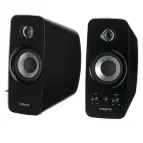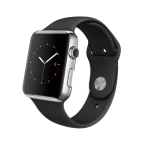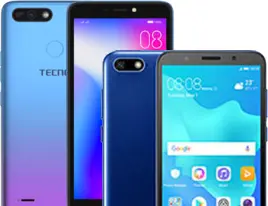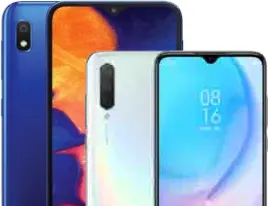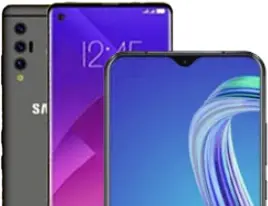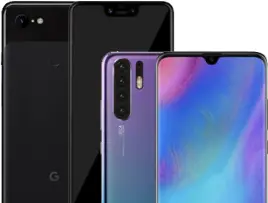
Apple iPhone XS
Specifications
- 5.8 inchesDisplay
- 4 GB RAMRAM
- WhBattery
- 12 MPBack Camera
| General Features | |
|---|---|
| Release Date | 01 Jan 2018 |
| SIM Support | Nano-SIM and e-SIM |
| Phone Dimensions | 5.65 x 2.79 x 0.30 in |
| Phone Weight | 177 g |
| Operating System | iOS 12 |
| Display | |
|---|---|
| Screen Size | 5.8 inches |
| Screen Resolution | 1125 x 2436 pixels |
| Screen Type | Super AMOLED capacitive touchscreen, 16M colors |
| Screen Protection | Scratch-resistant glass, oleophobic coating |
| Memory | |
|---|---|
| Internal Memory | 64/256/512 GB |
| RAM | 4 GB RAM |
| Card Slot | No |
| Performance | |
|---|---|
| Processor | Hexa-core |
| GPU | Apple GPU (4-core graphics) |
| Battery | |
|---|---|
| Type | null |
| Camera | |
|---|---|
| Front Camera | 7 MP |
| Front Flash Light | No |
| Front Video Recording | 1080p@60fps |
| Back Flash Light | Yes |
| Back Camera | 12 MP |
| Back Video Recording | 2160p@24/30/60fps, 1080p@30/60/120/240fps, HDR, stereo sound rec. |
| Connectivity | |
|---|---|
| Bluetooth | Yes |
| 3G | Yes |
| 4G/LTE | Yes |
| 5G | null |
| Radio | No |
| WiFi | Yes |
| NFC | Yes |
Highlights
September 12th is, by now, synonymous with the Apple Keynote Event in which the tech giant shows off its latest editions of the iPhone. Just like last year, Apple released three new iPhones; the iPhone XS, iPhone XS Max, and the iPhone XR. Apple chose to build on last year’s iPhone instead, which is reflected in the names chosen for the devices and the way they look and feel. That being said, the iPhone XS is the next big thing in town. It’s expected to cost around Rs. 130,000 when it comes out at the end of September 2018 and will take a further month and a half to reach our shores
Exactly like the iPhone X but with an added Gold colour scheme up for grabs
Since this phone is an evolution of its predecessor, it’s basically identical to last year’s iPhone X in terms of looks and build quality. We get the same almost bezel-less display notched at the top and the similar camera setup stacked on the rear. That being said, Apple did go through the effort of making a new colour option, Gold, along with the usual Space Gray and Silver by employing a special PVD (Physical Vapor Deposition) colour process on the stainless steel bands to get that gorgeous mirror shine.
Needless to say, the build quality of this phone is phenomenal. Featuring as Apple likes to call it “the most durable glass ever used in a smartphone” at its front and back, and the aforementioned “precision machined, surgical grade stainless steel bands” to hold it all together, the iPhone XS is a truly luxurious device. And it’s not just all for show, the precision engineering and high-quality materials warrant an IP68 rating, meaning the iPhone XS can survive water, juice and tea being thrown at it among other beverages. It also means you can hold the iPhone under 2 meters of water for 30 minutes without damage although we do recommend you not to do so.
In terms of size, the iPhone XS is a mirror image of the iPhone X, with 143.6 x 70.9 x 7.7 mm dimensions and a screen size of 5.8 inches. The XS slightly heavier, at 177 grams, compared to the iPhone X’s 174 grams.
A screen so good, they used it twice!
Both the iPhone XS and XS Max feature the same display, just in different sizes. Arguably the best display on the market right now, the 5.8-inch Super Retina OLED panel on the iPhone XS is a stunner to look at and use. It features a resolution of 2436 x 1125 and a pixel density of 458 ppi, making it the most colour accurate display in the industry. It also offers support for HDR10 and Dolby Vision allowing for a greater dynamic range and a more life-like viewing experience.
The display has rounded corners which add to the aesthetics of the whole phone. Behind the scenes, a six-channel light sensor continually adjusts the brightness and white balance according to your surroundings, minimizing strain on the eyes after prolonged use (Apple calls this feature true tone). The screen covers the whole front of the device, bar the notch and minimal bezels, leaving no room for a home button or a fingerprint sensor, so FaceID is used to unlock the phone. Bye bye Touch ID!
Professional quality shots are now a routine thing
Cameras have always been a differentiating factor between iPhones and other phones. This year, engineers at Cupertino took an already excellent camera setup and cranked it up a notch.
The basic hardware for both front and back cameras is very similar to the cameras in the iPhone X with a dual 12 MP rear sensor, a wide-angle and a telephoto lens with apertures of f/1.8 and f/2.4 respectively. It features dual optical image stabilization and the ability to shoot video in 4K up to 60 fps. There is a 7 MP TrueDepth camera on the front notch.
However, the real party lies in the new chipset and software rather than the camera hardware. Utilizing a set of tools including the neural engine and the improved camera software, the iPhone XS can create a wide range of photo and video effects not found on many phones. The portrait mode offers five beautiful lighting effects, as well as an advanced bokeh mode and the ability to change the depth of field after the image has been taken.
Smart HDR helps to bring more detail into the image. The selfie mode also offers excellent portraits as well as handling the FaceID and Animoji/Memoji. Similarly, you can capture videos at up to 4K quality with slow motion and a rather excellent image stabilization mechanism to give you mind blowing amateur video footage.
If that weren’t enough, Apple also offers a collection of video courses on its website to help teach iPhone users how to make the most out of their phone cameras.
Apple’s love with superb performance continues…
Take a peek inside the iPhone XS and you’ll find what Apple calls “The smartest, most powerful chip in a smartphone”, the A12 Bionic. A truly remarkable piece of computer engineering, the A12 Bionic features a 6 core CPU that include four efficiency cores to tackle everyday tasks while sipping at the battery and two performance cores for more performance intensive tasks. It also contains an improved 4 core GPU offering a 50% increase in graphics performance over last year’s chip.
An upgraded Neural Engine and ISP help make it a significant step up from last year. All of this allows for enhanced artificial intelligence and machine learning capabilities, so be on the lookout for apps that exploit these abilities to provide a truly unique experience. For the first time, the iPhone is available with 512 GB of storage along with the usual 256 GB and 64 GB, without an option for an SD Card and for the first time ever in an iPhone, 4 GB of RAM.
The iPhone XS hosts a bunch of unique features that help set it apart in the industry, but the headphone jack is history now. To make up for this omission, Apple includes a set of lightning earphones (which you have to purchase separately), but it’s still a feature that everyone seems to miss in the newer generation of iPhone. FaceID is now much faster and smarter, while 3D touch also retains its place.
Apple iPhone XS pros:
- A remarkable piece of engineering; build quality, especially, is top notch
- Amazing camera experience with tons of features that make you feel like a pro
- Arguably the best smartphone in terms of sheer performance
- Beautiful display with crisp and clear graphics as well as HDR10 and Dolby Audio
Apple iPhone XS cons:
- Incredibly expensive. It’s up to the buyer to justify the price
- A lot of very competitive phones cost much less
- Not much difference between this and its predecessor, the iPhone X





